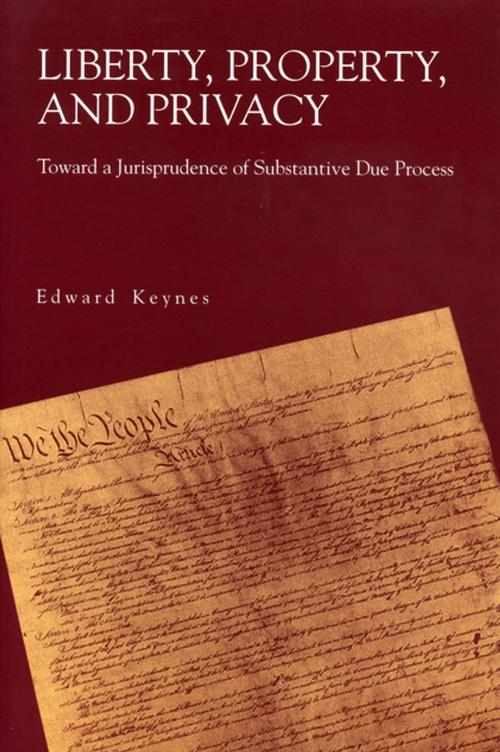Liberty, Property, and Privacy
Toward a Jurisprudence of Substantive Due Process
Nonfiction, Religion & Spirituality, Philosophy, Political, Social & Cultural Studies, Political Science, Politics, History & Theory| Author: | Edward Keynes | ISBN: | 9780271072692 |
| Publisher: | Penn State University Press | Publication: | February 27, 1996 |
| Imprint: | Penn State University Press | Language: | English |
| Author: | Edward Keynes |
| ISBN: | 9780271072692 |
| Publisher: | Penn State University Press |
| Publication: | February 27, 1996 |
| Imprint: | Penn State University Press |
| Language: | English |
In this book, Edward Keynes examines the fundamental-rights philosophy and jurisprudence that affords constitutional protection to unenumerated liberty, property, and privacy rights. He is critical of the failure of the U.S. Supreme Court to adopt a coherent theory for identifying which rights are to be considered fundamental and how these private rights are to be balanced against the public interests that the government has a duty to articulate and promote. Keynes develops his argument by first surveying how substantive due process grew out of the tradition of Anglo-American jurisprudence and came to evolve over time. He pays special attention to the shift in its application early in the twentieth century, from protecting "liberty of contract" against economic regulation to protecting "privacy" and other noneconomic rights (as in Roe v. Wade) against social regulation.
In this book, Edward Keynes examines the fundamental-rights philosophy and jurisprudence that affords constitutional protection to unenumerated liberty, property, and privacy rights. He is critical of the failure of the U.S. Supreme Court to adopt a coherent theory for identifying which rights are to be considered fundamental and how these private rights are to be balanced against the public interests that the government has a duty to articulate and promote. Keynes develops his argument by first surveying how substantive due process grew out of the tradition of Anglo-American jurisprudence and came to evolve over time. He pays special attention to the shift in its application early in the twentieth century, from protecting "liberty of contract" against economic regulation to protecting "privacy" and other noneconomic rights (as in Roe v. Wade) against social regulation.















